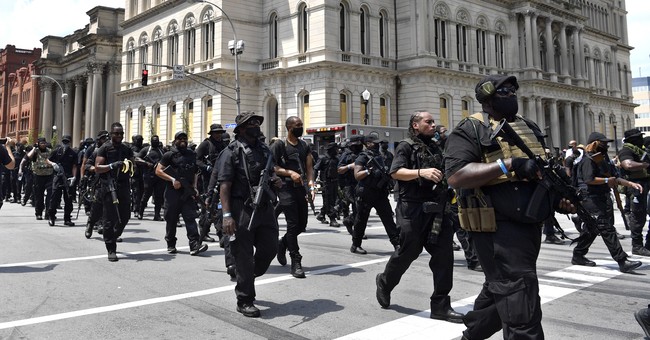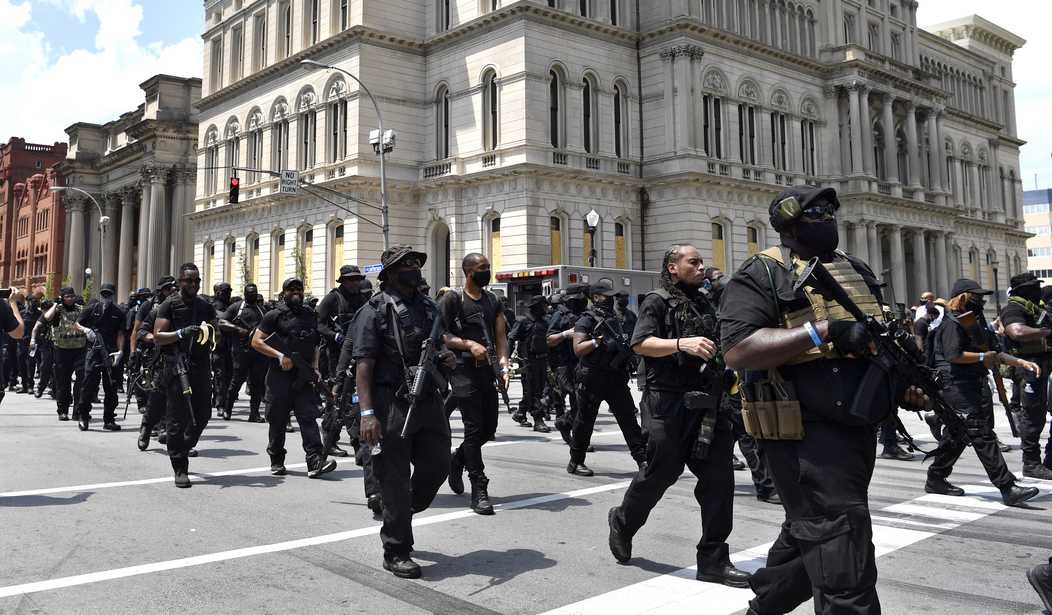
A Kentucky grand jury today announced that only one of the police officers involved in the shooting of Breonna Taylor will face criminal charges connected to the incident, and the charge filed in “wanton endangerment” under Kentucky state law.
I’ll have a more detailed look at the charging decision later, but there is an important point to be made about why this outcome was almost always a foregone conclusion.
It is easy to have diametrically opposed points of view on the shooting of Taylor by members of the Louisville Police Department. The circumstances are easy to condemn, and there is no question but that her death was a horrible tragedy brought on by a crescendo of bad judgments and decisions on the part of many others — all of whom are alive. So the sheer sense of injustice and outrage on behalf of someone who did nothing wrong is raw and understandable.
But as a legal matter, there exists a “well-worn path” in the law with regard to innocent bystanders who end up as victims in the aftermath of violence tied to police enforcement actions. There are simply too many cases to ever catalog in one place about third parties who are accidentally targeted — and injured or killed as a result — during the use of deadly force by law enforcement in an otherwise lawful execution of their seizure/arrest powers.
I’m not going to attempt in this article to go through all the missteps by law enforcement and the judiciary in the events leading up to the shooting of Taylor. But the problems began with the application for a search warrant on her residence that was “thin”. There was likely probable cause based on the news accounts I’ve read — I haven’t read the warrant paperwork itself — but it wasn’t a key location that was hit that night as part of the larger investigation. The officers assigned to search her apartment didn’t even use tactical gear in doing so — they had no expectation that the search would be anything other than routine. But the real issue is that they applied for authority to execute the warrant at night — normally you need a justification to search between the hours of 9:00 pm and 6:00 am — and that the Judge granted that authorization based on boilerplate language in the application. There was no meaningful reason set forth for why that search had to take place at the time of night it happened, and the Judge let that happen by not being more deliberate in scrutinizing the justification offered in the paperwork. The police should not have asked for it, but it was the job of the Judge to say “No” if the justification wasn’t presented adequately.
Yes, the officers likely should not have been conducting a search of Taylor’s apartment that night. But a judge gave them the warrant, and they were there to execute the warrant.
In response to their actions, Kenneth Walker, her boyfriend, fired first. Whether he was justified to act in self-defense in response to people he didn’t recognize breaking into the apartment is not relevant. The simple fact is he fired first. As law enforcement officers — both for their protection and the protection of any other citizen in the vicinity of the incident — the three Louisville PD officers were required to act decisively “without the luxury of a second chance” to address a life-threatening situation. Had they not attempted to disable Walker they would have failed to address the immediate risk of serious harm or death to themselves and other citizens.
This formulation of the obligations of law enforcement officers in responding to the use of deadly force against them eliminates the prospect of prosecuting them for crimes connected to their actions. They had no choice but to shoot back at Walker. The fact that Taylor was accidentally killed in the exchange of gunfire does not change the lawfulness of their response to Walker shooting at them.
I do not think I’m exaggerating when I say the cases number in the thousands where police officers have mistakenly injured or killed innocent bystanders while using deadly force against someone employing deadly force against them. Most are civil cases, and the bystanders or their victims rarely win because the bar for civil liability in such cases is set so high. In 1998 the Supreme Court decided the case of County of Sacramento v. Lewis, which involved the death of a “bystander” caused by police action in connection with a high-speed chase. The case involved the death of a passenger on a motorcycle which happened when the driver of the motorcycle attempted to evade the police officer during a high-speed chase. The driver lost control and was thrown clear after the motorcycle went down. But the passenger ended up on the roadway in the path of the pursuing patrol car and was struck and killed.
The officer had done nothing to cause the driver’s high-speed driving in the first place — he turned to pursue the motorcycle only after observing the illegal manner of operation by the driver. The officer did nothing to cause the motorcycle to lose control, and nothing beyond a refusal to call off the chase to encourage the motorcycle operator to race through traffic at breakneck speed forcing other drivers out of their travel lanes. The driver’s outrageous behavior was instantaneous — similar to Walker’s shooting of the first officer through the doorway — and so was the pursuing officer’s instinctive response. The pursuing officer’s instinct was to do his job as a law enforcement officer. Prudence might have caused the pursuing officer to consider other enforcement options, but his failure to do so did not suggest improper or malicious motives on his part.
The opinion in Lewis was written by Justice Ginsburg, and the vote of the Court was 9-0, with concurring opinions written by Chief Justice Rehnquist, Justice Kennedy, Justice Breyer, Justice Stevens, and Justice Scalia. They all had different views on exactly how they reached the outcome in the case, but they all reached the same outcome.
Extending this reasoning to the Taylor shooting, the officers were lawfully at the residence with a search warrant in hand. They forced entry — the facts around that are disputed but not meaningful in a criminal context — and Walker fired the first shot at them, hitting of the officers. After that the incident falls into the “instantaneous instinctual response of law enforcement” and collateral injuries or death are unfortunate but not actionable.
The lack of civil liability that attends incidents involving the death or injuries caused by bystanders by police action forecloses criminal prosecution. If the officers’ conduct is not objectively wrong in the sense that the victim’s family is not even entitled to monetary compensation for the conduct, it is not possible to send the officer to jail for the same conduct.














Join the conversation as a VIP Member